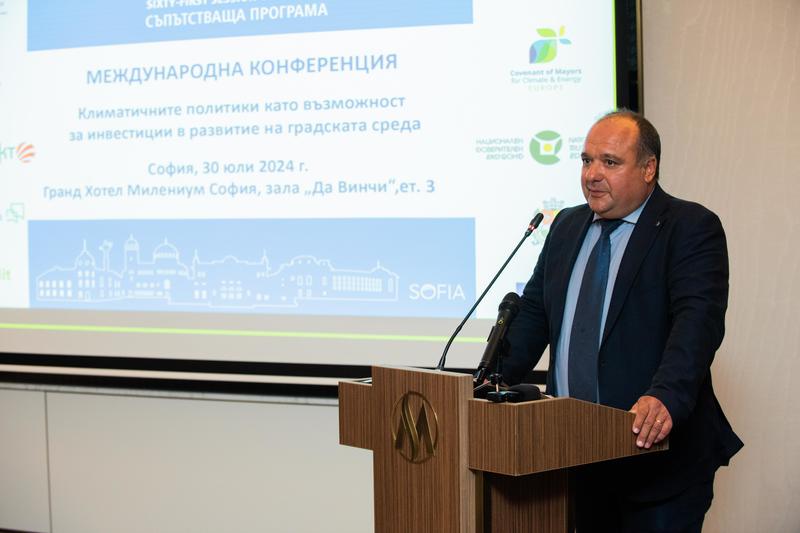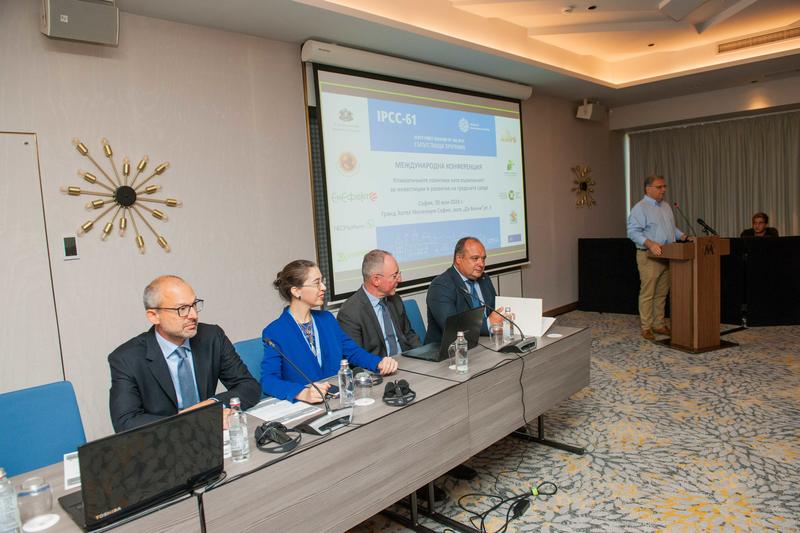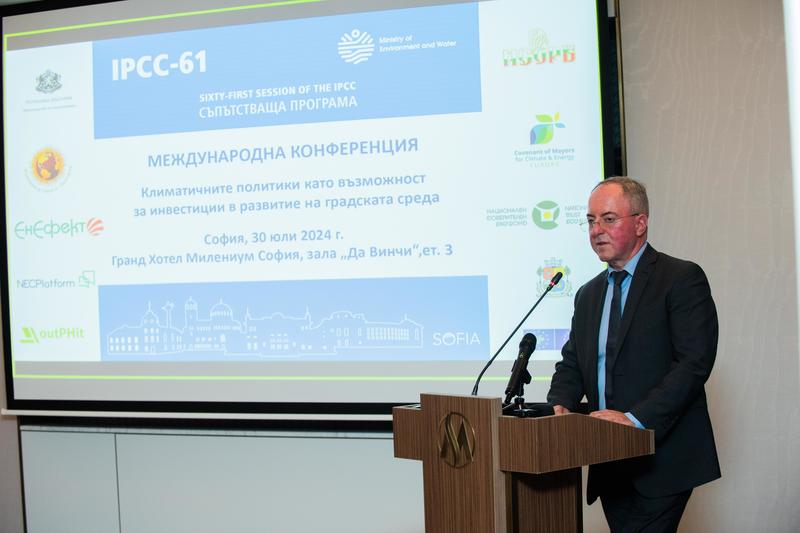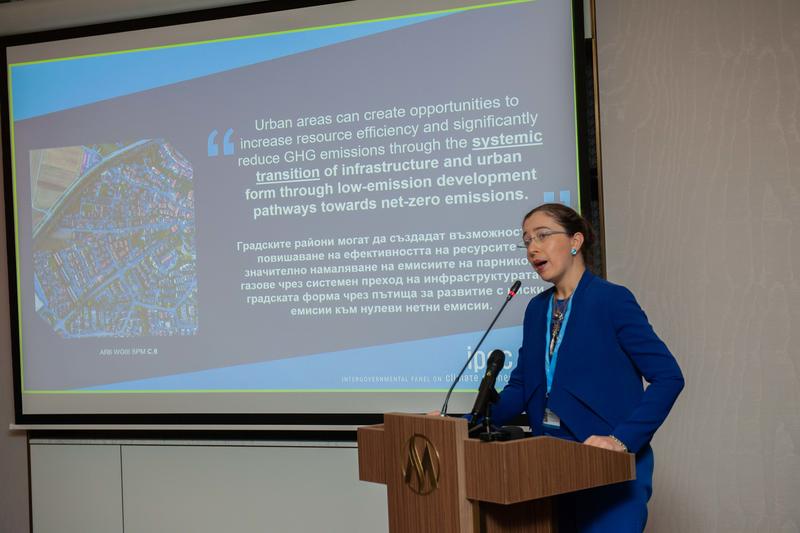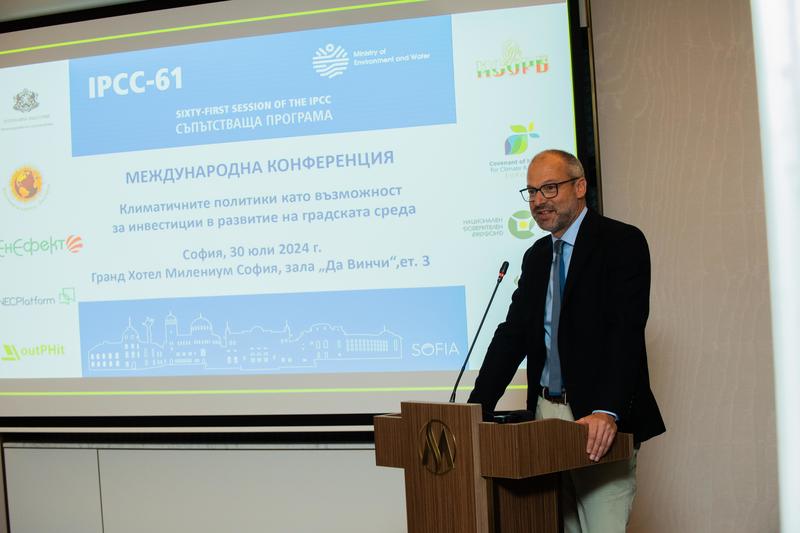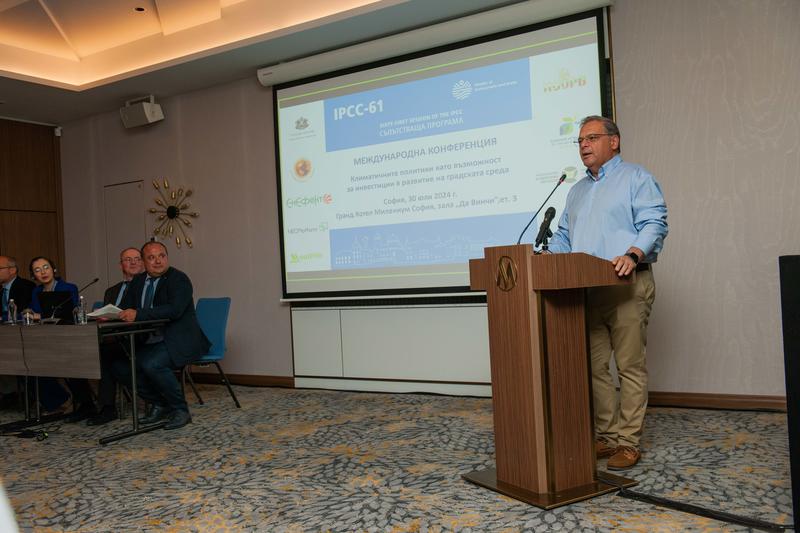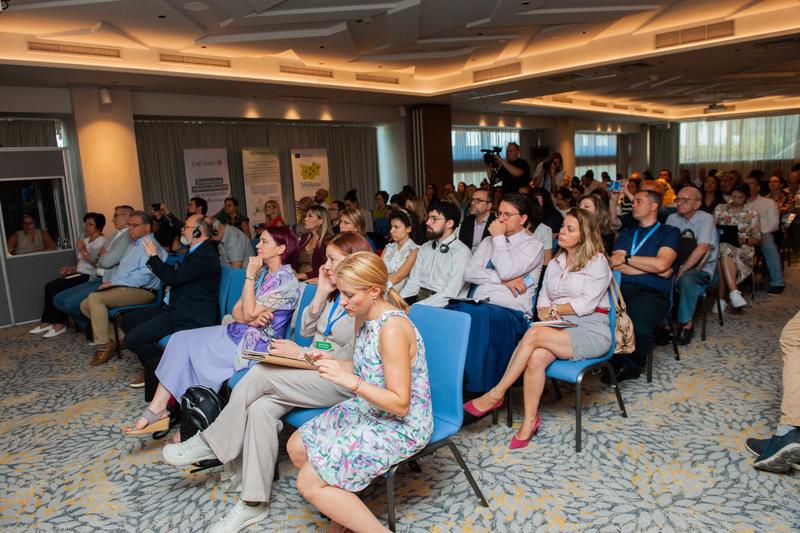Climate policies as an opportunity for urban development were discussed at a conference under the Bulgarian hosting of the IPCC
30 Jul, 2024 | 15:39"Climate change needs to be tackled not only globally and nationally, but also locally. Local government is closest to the people and therefore knows how to implement climate change and mitigation policies together with adaptation to changes that have already occurred." This was said by the Minister of Environment and Water Petar Dimitrov at the opening of the international conference "Climate policies as an opportunity for investment in urban development".
The forum brought together politicians, mayors, scientists, experts, and public figures and is part of the satellite programme to the 61st session of the Intergovernmental Panel on Climate Change (IPCC), which is taking place in Sofia. Bulgaria and the Ministry of Environment and Water (MOEW) are co-hosting the session, which is taking place between 27 July and 2 August. The conference is organised by the MOEW, jointly with the Ministry of Energy, the National Association of Municipalities in the Republic of Bulgaria, the Climate Coalition, and the Center for Energy Efficiency “EnEffect”.
Minister Dimitrov reminded that cities are a concentration of people, businesses, industry, and infrastructure, which is why they are the place to solve climate challenges. "I see more and more settlements with measures against hotspots - if in the past big squares were built, now adaptation requires a green approach,” highlighted the minister. Therefore, he insisted, good cooperation between institutions and local authorities are needed, thereby noting with satisfaction that the public and businesses are now actively involved in the process of working for healthier lives and a cleaner environment.
During the opening of the conference, Deputy Minister of Energy Krasimir Nenov added that urban communities are a key driver of change towards a sustainable green future and the circular economy. And he recalled that Sofia and Gabrovo are among the 100 European climate neutral cities - an EU campaign with a 2030 horizon. Speaking to the representatives of the municipalities, Deputy Minister Nenov underlined that the Ministry of Energy encourages green initiatives.
Introductory presentations in the panel "Cities as a key partner in the development and implementation of climate policies" were delivered by Şiir Kılkış, Vice President of the IPCC's Working Group on Limiting Climate Change, and Dr. Phillippe Tulkens, Head of Unit at the “Healthy Planet” Directorate within the European Commission's Directorate-General for Research and Innovation and Deputy Head of the EU Climate Change Adaptation Mission.
The importance of reducing emissions in urban environments was highlighted by Prof. Şiir Kılkış. This is one of the topics of discussion during the IPCC session. The use of materials that require lower energy consumption as a measure for sustainable production and a change in the design, positioning and construction of housing towards energy efficiency are just some of the exemplary policies noted by Prof. Kılkış. "Forums such as today's aim to assist governments and local authorities in finding solutions for climate change effects mitigation and for the 'cooling' of cities," added Şiir Kılkış.
In turn, Dr Phillippe Tulkens urged the scientific community to publish their research and submit their author nominations to the IPCC, as the next scientific report is upcoming. "Local authorities have a very important role to play in climate change adaptation efforts - the aim is to take transformative initiatives and actions so that solutions are tailored to their local needs. Seek funding from the European Cohesion Policy, EBRD, and other opportunities to secure funding," Dr. Tulkens urged the mayors.
The focus of the event was on the role of local authorities in implementing modern solutions for energy efficiency, renewables, and adaptation to climate change. Results of innovative projects and funding opportunities for local sustainable energy initiatives were presented during the forum.
Participants in the discussions raised questions and pointed to examples of how the EU's 100 Climate Neutral and Smart Cities and Climate Change Adaptation missions are stimulating synergies between central and local governments to develop workable investment models and improve municipal infrastructure.
All information on Bulgaria's hosting of the IPCC Session can be found on the MOEW website at https://www.moew.government.bg/bg/klimat/ipcc/satelitna-programa/
